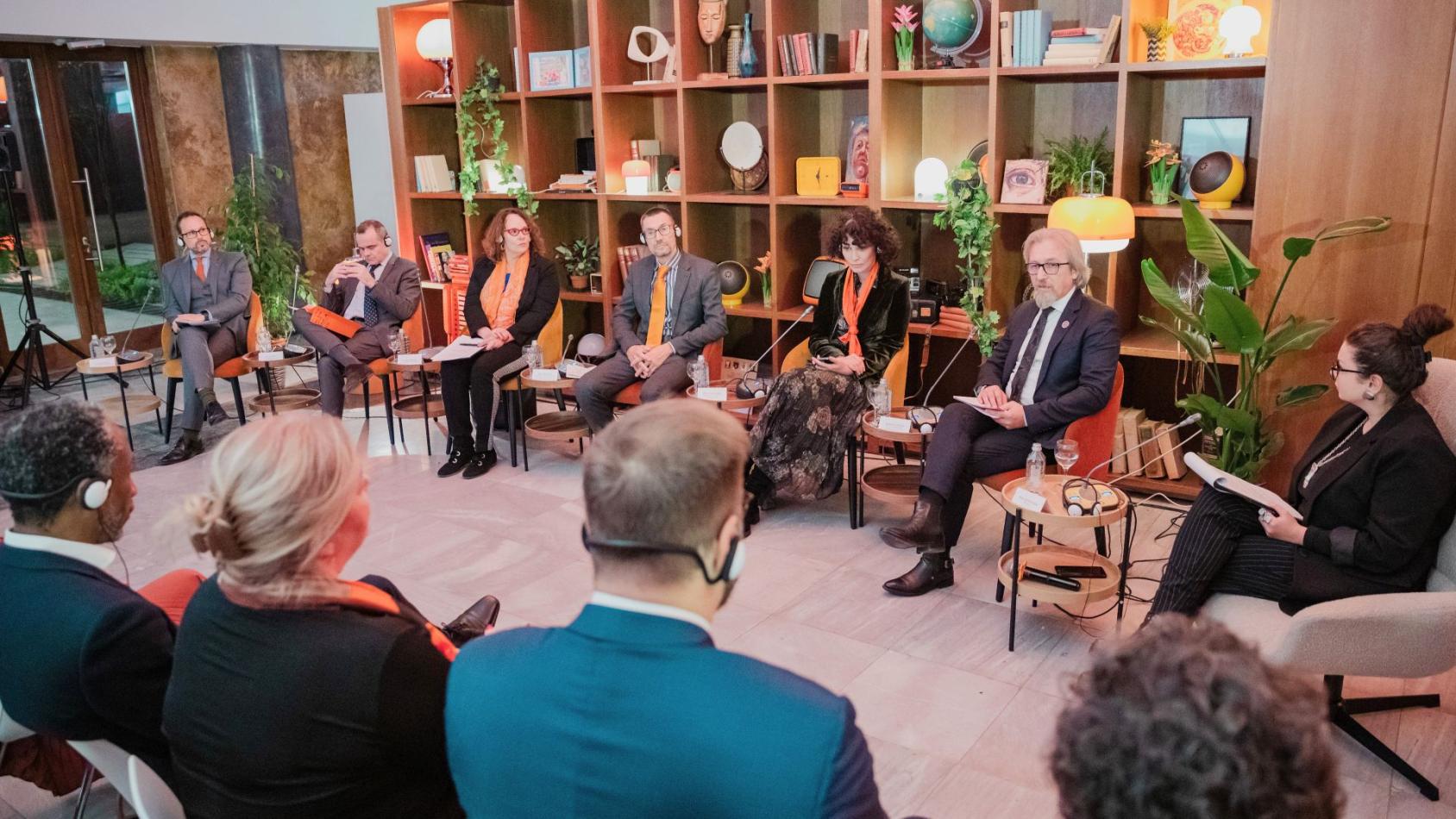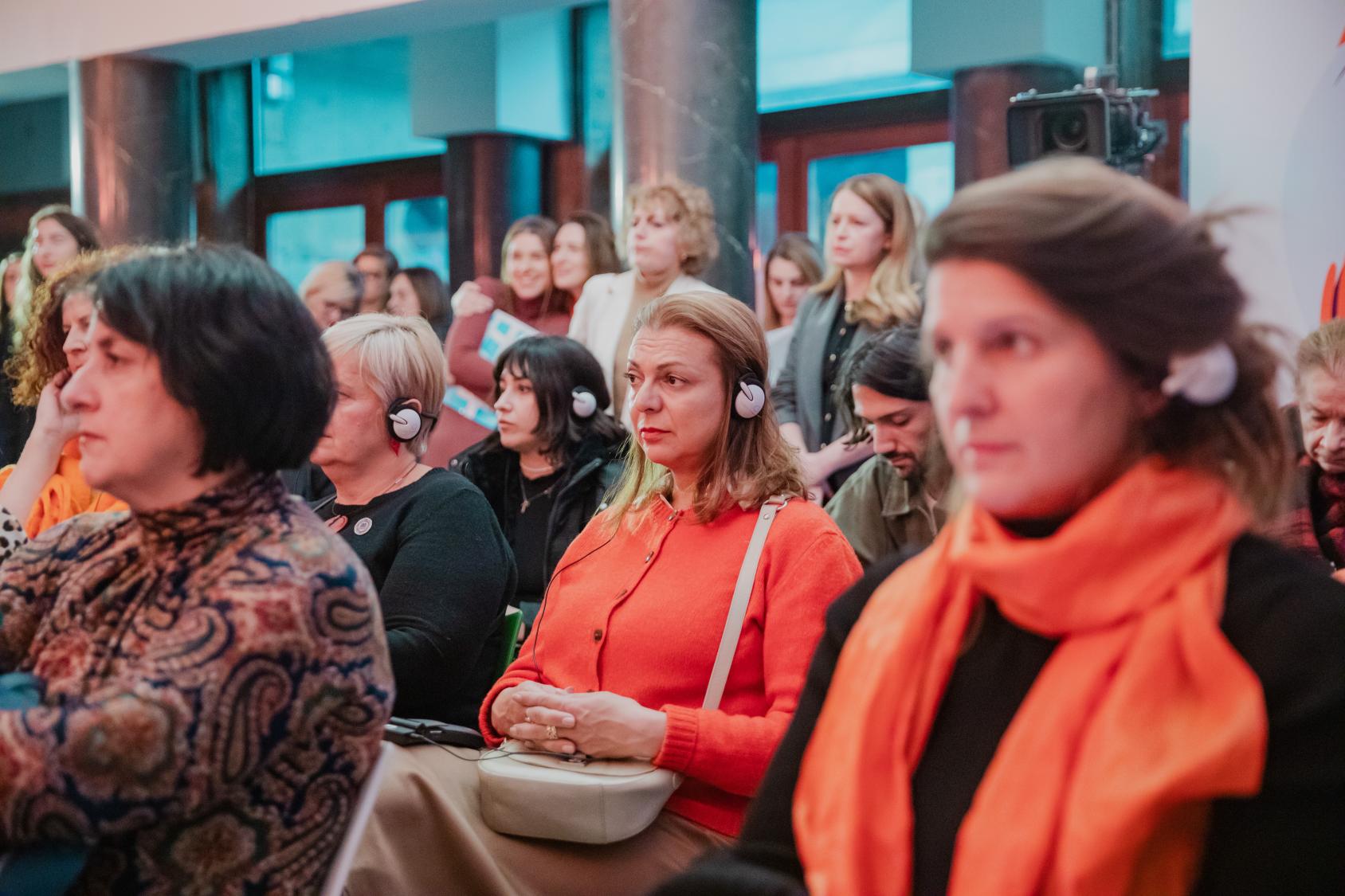North Macedonia's New Development Vision
In October 2024, capping one of the most challenging but incredibly fulfilling experiences of my career as an Economist with the UN in North Macedonia team, the country’s parliament adopted the National Development Strategy (NDS) 2022-2024. It was a near unanimous decision, and as I watched the votes light up the screen, sitting in the Parliament guest lobby with members of the diplomatic corps and UN colleagues, including the Resident Coordinator, I could not help but reflect on the journey that led us to this momentous occasion.
This landmark strategy provides North Macedonia with a comprehensive roadmap for sustainable development, in line with the 2030 Agenda and the European Union (EU) accession process. At the same time, the successful adoption of the NDS highlights the UN's convening power and commitment to collaborative development.
It all began with the North Macedonia Common Country Analysis the UN conducted in 2020. This analysis, which informed the UN Sustainable Development Cooperation Framework (UNSDCF) 2021-2025, revealed the lack of a long-term development plan and paved the way for the UN’s engagement in supporting North Macedonia through the process of creating one.
The Resident Coordinator pitched the UN’s support in formulating a national development vision, when a new Government took charge in 2021. This proactive engagement secured high-level political buy-in and helped mobilize more than $1 million from the British Embassy to be implemented by the UN Development Programme (UNDP).
The Resident Coordinator’s Office (RCO) strongly supported the process, nurturing an effective collaboration and trust between the government and development partners that culminated with an agreement on the following core principles that shaped the NDS process:
- National ownership: National stakeholders maintained ownership, with the UN providing technical support, expertise, and data to inform evidence-based, forward-looking, and innovative decision-making.
- Inclusivity: The UN's role as a neutral convener fostered extensive consultations across diverse groups, ensuring the NDS reflected a wide range of perspectives. This inclusivity spanned ethnic, generational, political, and gender lines, promoting a sense of shared vision for the country's future.
- Alignment: The NDS effectively consolidated reforms crucial for sustainable development, seamlessly aligning with both the 2030 Agenda and the EU accession process. This alignment maximized the impact of national efforts towards achieving broader development goals.
These principles were fundamental in ensuring that the NDS was a truly national strategy, built on consensus and broad-based participation.

Most notably, there was significant cross-party buy-in. Working closely with the Speaker of Parliament, the RCO and UNDP facilitated engagement from all political parties, resulting in an effective cooperation across party lines. This led to the joint initiation of a law that provided the legislative basis for the NDS, demonstrating strong political support for the strategy. Public debates organized by Members of Parliaments from different parties further solidified this commitment, ultimately paving the way for a smooth adoption process.
Further highlighting this broad-based participation, the Strategy, was built on a foundation of extensive research and consultation. More than 90 per cent of respondents in a public opinion survey confirmed overwhelming support for a long-term development vision. The process engaged over 20,000 stakeholders from the public sector, academia and civil society and harnessed innovative tools and approaches, including “dream labs” that used Foresight techniques and an interactive online portal. The country’s leading academic institution, the Macedonian Academy of Science and Arts, effectively led the extensive research and analysis that informed the vision.
UNDP led the implementation of the project and secured additional funding from the Slovak Government. UNDP also designed the “dream labs,” coordinated the comprehensive consultations and facilitated quality assurance as part of the process. Specialized UN agencies contributed gender analysis, capacity building, strategic planning, and targeted outreach to vulnerable groups, including farmers, youth, and children. By bringing stakeholders together, the UN in North Macedonia team ensured that the NDS aligns with the Sustainable Development Goals and leaves no one behind, including those most vulnerable.

The RCO played a pivotal role in facilitating coordination among various partners to support UNDP navigating the complexities of a multi-stakeholder process, while leveraging strong relationships with the government, parliament, donors, and UN agencies. As the RCO Economist, I worked closely with my counterparts, including experts from the Macedonian Academy of Science and Arts and International Finance Institutions. We ensured sustainability considerations are integrated into North Macedonia's vision for economic transformation and provided economic analysis that prioritizes social cohesion and environmental protection in addition to economic growth. We advocated for promoting prosperity for all while preserving the country's valuable natural resources.
Throughout these processes, the Government, the UN and their partners considered emerging trends at the local, regional, and global levels. This work resulted in a comprehensive, landmark Strategy that lays a strong foundation for sustainable and inclusive economic development in North Macedonia.
Back to the Parliament’s guest lobby, I felt a wave of pride with each "yes" that lit up the screen, meaning a Member of Parliament cast her or his vote in support of the NDS. The result of the work of so many is unfolding in front of my eyes, ushering in a new era firmly anchored in sustainability and development for North Macedonia.
Looking ahead, the UN continues supporting the implementation of the NDS, including through the new Cooperation Framework 2026-2030. We are ensuring the Strategy translates into tangible benefits for the people of North Macedonia we serve.
This blog was written by the Economist at the Resident Coordinator’s Office in North Macedonia, Joana Babushku. To read more about the work of the UN in North Macedonia visit northmacedonia.un.org













